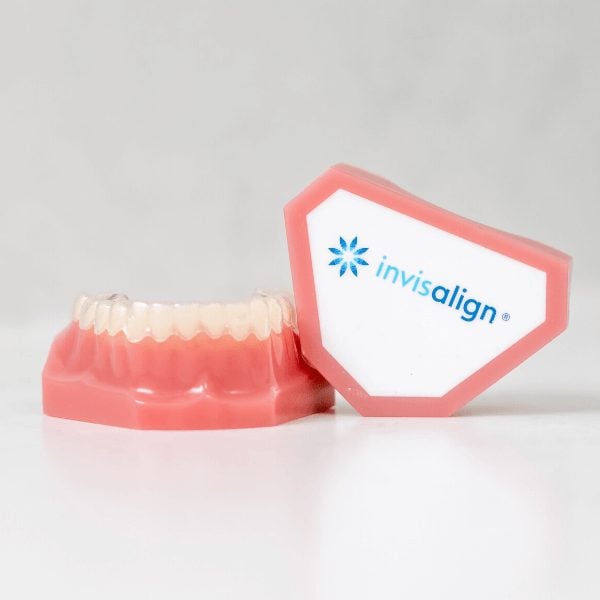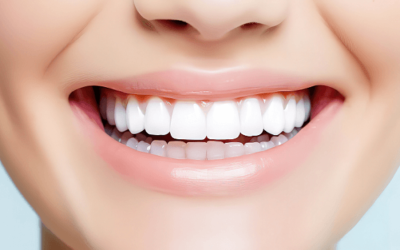How to Fix Rotten Teeth
Having rotten teeth can be a cause of embarrassment, pain, and discomfort for many people. Whether you’ve been ignoring your dental hygiene for too long or have experienced an unexpected dental emergency, there are a few ways you can fix rotten teeth and get back to feeling confident about your smile.
With the help of professional dental care and a few simple lifestyle changes, you can restore your teeth to their former glory. Learn more about the different ways to fix rotten teeth, from simple brushing and flossing to more advanced dental treatments.
What causes rotten teeth?
While there are many factors that could lead to rotten teeth, dental caries are the most common origin of decayed teeth. Dental caries, also known as cavities, are caused by a buildup of bacteria in the teeth, which breaks down the teeth and leads to a hole forming in the tooth’s enamel.
Once a cavity forms, it can spread to other teeth, causing pain, sensitivity, and even more serious health issues.
Other causes of rotten teeth include gum disease, poorly fitted dental work, genetic markers, and certain medications that can dry out the mouth and lead to bad breath.
Poor dental habits such as frequent snacking on sticky or sugary foods, neglecting to floss, not brushing at least twice a day, and irregular dental check-ups can all lead to rotting teeth.
Signs of rotten teeth
While rotten teeth are often painful, it’s crucial to regularly check for signs of dental caries. If left untreated, tooth decay can spread to other teeth and cause serious health complications, like heart disease and kidney disease.
The first signs of rotten teeth have no signs or symptoms, small infections can occur within the fissures of your teeth or in between your teeth without any pain or discomfort. That’s why visiting your dentist twice a year is crucial to fix any rotten teeth before the infection advances and causes more damage.
Once the infection advances and affects the nerve, pain in the tooth or noticeable sensitivity will occur. You may also notice that your teeth look darker than before and have a sticky texture. Additionally, you may have bad breath, feel discomfort while chewing, and experience teeth that are loose or falling out.
How to prevent rotten teeth
The best way to prevent rotten teeth is by practising proper dental hygiene. This includes brushing your teeth twice a day, flossing at least once a day, limiting sugary and sticky snacks, and visiting the dentist for regular check-ups.
If you’ve been ignoring your dental hygiene for too long, regular brushing and flossing may not be enough to prevent more serious dental issues. Instead, visiting a dentist for a check-up and cleaning may be recommended. The dentist may also be able to restore teeth that are already decayed with professional dental treatments such as fillings, dental crowns or porcelain veneers.
Professional dental treatments for rotten teeth
No one likes visiting a dentist, and many people would rather put up with dental pain than get their rotten teeth fixed due to fear and cost.
However, this is very problematic because as more and more teeth become rotten, the cost to get them fixed will exponentially increase. For this reason, it’s important to visit your dentist at the first sign of tooth decay.
There are generally three ways your dentist can fix your rotten teeth.
Fill the tooth
If the decay or tooth infection is minor, the tooth can be saved by a dental filling.
A dental filling is a type of restorative dentistry procedure where the dentist will remove any decay or bacteria, clean the affected area, and then fill the gap with a material like composite resin or ceramic. This material helps to restore the function, integrity, and shape of the tooth, allowing it to look and feel like a natural tooth.
A filling will is a great solution for removing bacterial infection and preventing the hole from getting bigger. However, if the tooth has symptoms such as sensitivity to hot or cold, sometimes a filling can no longer do the job because the nerve is affected.
Root canal treatment
Root canal treatment involves removing the infected or damaged pulp from the inside of a tooth, and then resealing the tooth. The pulp is the soft tissue inside a tooth that contains nerves and blood vessels.
The goal of root canal treatment is to restore a rotten tooth and prevent further damage from occurring. This procedure generally takes one to three visits and is often performed under local anaesthesia. After the procedure is complete, a crown or other restoration may be placed to protect the tooth.
Many patients avoid seeing a dentist because they have heard, or have a perception that root canals are painful. Some patients also have had bad experiences with dentists in the past due to root canal treatments.
However, with the advancement of technology and anaesthetics in the modern age, and the improving techniques of well-trained dentists over the last few decades, most root canals should not be painful at all. Of course, some discomfort may be inevitable depending on your situation, dental phobia is not as prevalent in the younger generations compared to the past.
Extraction of the tooth
If the rotten tooth is deemed ‘unrestorable’ or not worth fixing, then your dentist will recommend the removal of the tooth.
Once a tooth is gone, you will have many other problems such as overloading of surrounding teeth; sinking of your lip support, as well as loss of bone and soft tissue in that region. This may lead to aesthetic and functional issues in the long term which will be much more expensive to fix.
Other treatment options
The treatment of choice for fixing rotten teeth is dependent on not just local factors, but ‘global’ considerations. For example, if you’ve already lost a few molars on the left-hand side, then keeping the molars on the right-hand side might be more important than ever for functional reasons.
On the other hand, if your bite is not great, then sometimes the dentist may suggest doing a full mouth rehabilitation by reconstructing all of your teeth so they fix together nicer, which means the result will last must longer.
Diet and lifestyle tips for healthy teeth
If you want to prevent your teeth from rotting in the first place, follow a healthy lifestyle that promotes oral health.
- Avoid snacking on sugary and sticky foods, which can lead to cavities.
- Drink plenty of water to keep your mouth hydrated and your saliva levels up, which can help prevent bacteria from building up on your teeth.
- Maintain good oral hygiene by brushing and flossing every day
- Visit your dentist for regular check-ups and cleaning.
If you’ve already developed a case of rotten teeth, it’s important to follow a healthy diet and lifestyle even while you are restoring your teeth. This will help prevent further dental issues from occurring, as well as aid your dental treatments.
Questions to ask your dentist
If you have rotten teeth, don’t leave them untreated even if you don’t have pain. Go see a dentist, even if it’s just for a checkup. During the first visit ask as many questions as you can and see if the dentist listens to your fears and if the team is gentle and caring.
Consider asking the following questions.
- Is my dental health at risk?
- What are the treatment options?
- What are the risks of each treatment?
- What are the possible side effects?
- What will the treatment cost?
- Is there anything I can do to minimize the damage?
- What self-care practices should I follow?
- What are the signs that I need to see the dentist?
While you may feel embarrassed or ashamed, it’s important to be honest with your dental health professionals so they can provide the best care.
Once you have found a dentist you can trust, you will establish a lifelong relationship and dental fear will be a thing of the past.
Disclaimer: The material posted is for informational purposes only and is not intended to substitute for professional medical advice, diagnosis or treatment. Results vary with each patient. Any dental procedure carries risks and benefits. If you have any specific questions about any dental and/or medical matter, you should consult your dentist, physician or other professional healthcare providers.
Services we mentioned:

Cosmetic Dentistry

Invisalign

Dental Veneers
Related Articles
What is All on 4 Dental Implants? What You Need to Know
Discover the cost of Invisalign in Melbourne with our comprehensive guide. From pricing & payment options to finding the perfect Invisalign dentist.
Breaking Down the Cost of Veneers in Melbourne
Discover the cost of Invisalign in Melbourne with our comprehensive guide. From pricing & payment options to finding the perfect Invisalign dentist.










